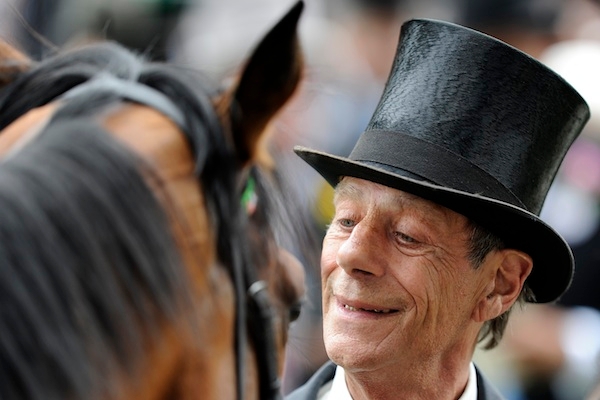This is by far the best book on racing I have ever read. It combines a truly extraordinary story — one that no novelist would have dared to submit — with brilliant writing by an author who is almost as knowledgeable about horses and the turf as his subject.
Sir Henry Cecil had a privileged upbringing and a not very successful academic career; by the age of 20 he still had no idea what he wanted to do with his life and it seems that it was nurture — his stepfather was a flat-race trainer— rather than nature that led him to horses. In view of his superhuman dedication to the career which chose him one must assume that he would have succeeded in anything he decided to do.
His career as a trainer does indeed mark him out as a genius. He understands horses as only very few do, and he combines this with the ability to inspire his team to produce results which are right up there with the best of his peer group. Over the last 43 flat-racing seasons he has been champion trainer in this country ten times and runner-up a further seven.
What makes this story so absorbing is Cecil’s character, and his response to the devastating problems that have be-deviled the second half of his life. These he has triumphed over, and has returned to the summit of his sport, and the adulation of the entire racing industry from Her Majesty to the betting-shop punter.
Brough Scott has been a leading racing commentator for most of Cecil’s career and a privileged observer of the most recent chapter of that switchback of a life, having been allowed complete access to the story of Frankel — the ‘wonder horse’, trained by Cecil, and described by him as ‘the best I’ve ever had and the best I’ve seen.’
Scott has had to deal with the awkward issue of how detailed a likeness to draw: there are some dark sides of Cecil’s personal story — luridly reported in the media — which the author could not ignore. He has added very little to what was so widely covered by the tabloids, and has struck a fair balance. It is a pity that Cecil has taken such exception to this reiteration, but it could hardly have been avoided. One can only hope that time will heal the rift.
It is a great book, but I wish the integrated grey-and-white photographs had been stronger and that the index had been complete. I would have enjoyed a little more about Cecil’s famous roses — indeed about his garden generally, of which there are many brief mentions but not a single image. Chester is a left-handed track — not right-handed as stated — and the trees in the pre-parade ring at Ascot are limes, not sycamores. These pedantries aside, I raise my hat to Brough Scott, a sportsman turned writer for whom my admiration knows no bounds.
What does make Henry Cecil a ‘trainer of genius’? Many examples are given of his extraordinary ability to understand horses — an extra sense, which is inexplicable and impossible for Cecil himself to describe. It is an innate quality, which sets him apart from mere mortals.
Despite the ravages of terrible cancers, Cecil has given all those who love to see good horses compete at the highest level nearly half a century of pleasure — and very often profit. This book is a just tribute to a man who deserves to be admired beyond even his achievements.





Comments